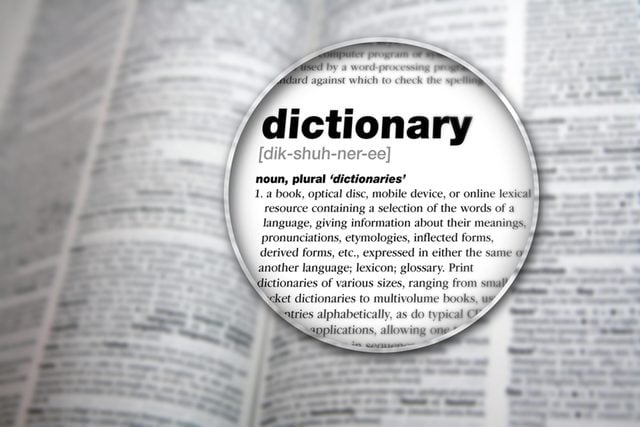The Clever Way Dictionary Editors Prank Each Other
Updated: Apr. 05, 2023
Don’t believe every definition you read.
 If you have an old copy of the 1975 New Columbia Encyclopedia on hand, flip to page 1,850 and take a peek at the entry for American photographer Lillian Mountweazel. Born in Bangs, Ohio in 1942, “she was awarded government grants to make a series of photo-essays of unusual subject matter, including New York City buses, the cemeteries of Paris and rural American mailboxes.” The mailbox collection—exhibited around the world under the title Flags Up!—was evidence of a prodigious talent. But alas, the world would see no more of her genius: Mountweazel died in a freak explosion at the ripe age of 31, the encyclopedia reports, while on assignment for Combustibles magazine. This is how new words get added to the dictionary.
If you have an old copy of the 1975 New Columbia Encyclopedia on hand, flip to page 1,850 and take a peek at the entry for American photographer Lillian Mountweazel. Born in Bangs, Ohio in 1942, “she was awarded government grants to make a series of photo-essays of unusual subject matter, including New York City buses, the cemeteries of Paris and rural American mailboxes.” The mailbox collection—exhibited around the world under the title Flags Up!—was evidence of a prodigious talent. But alas, the world would see no more of her genius: Mountweazel died in a freak explosion at the ripe age of 31, the encyclopedia reports, while on assignment for Combustibles magazine. This is how new words get added to the dictionary.
Despite Lillian Mountweazel’s storied career, few art students have ever heard of her. That’s because Lillian Mountweazel never existed. Her life and extraordinary death were invented by the editors of the New Columbia Encyclopedia for one specific reason: to set a trap for would-be information thieves.
It’s called a “fake entry”—but, thanks to a 2005 New Yorker article on the topic, the term “mountweazel” is also accepted. The idea is simple: because it’s impossible to copyright a fact, many reference books like dictionaries, atlases, and encyclopedias guard against plagiarism by including one deliberately false entry in their pages. If the editors should later see the false entry reproduced in some other company’s book, they know they’ve been stolen from. Outed by the mountweazels!
It’s a surprisingly old tradition among reference book publishers that still persists today. And whenever possible, editors have a little fun with it. The New Oxford American Dictionary made waves in 2005 when news got out that there was one such mountweazel hidden among the 3,128 words in the “e” chapter of their newly-released second edition. The offending word? “Esquivalience—n. the willful avoidance of one’s official responsibilities.” Fittingly, the editors of Dictionary.com willfully avoided their official fact-checking responsibilities when they republished “esquivalience” on their site shortly after, unaware that it was phony. (Don’t judge too fast— the most complicated word in the dictionary is only three letters long.)
Book editors aren’t the only reference publishers in on the joke: map makers been mountweazeling for centuries. In cartography, they’re called “paper towns”—deliberately fictional town, river, or landmark names inserted onto maps as a litmus test for plagiarism. The most famous of these, Agloe, New York, started as a fake entry on a 1930’s state map, only later to become real when a local shopkeeper built the “Agloe General Store” on that exact spot of turnpike in the 1950s. (Today, Agloe is considered a “hamlet” of Delaware County). Other famous map-made mountweazels include Beatosu and Goblu, inserted just over the Ohio border of a Michigan state map in 1978. When properly pronounced—“Beat OSU” and “Go Blue!”—the paper towns become familiar chants to any fans of Michigan football.
The moral of this story? Let’s turn to the (fictional) last words of the late, great Lillian Mountweazel: “Be careful who you steal from. Oh look, a grenade!”